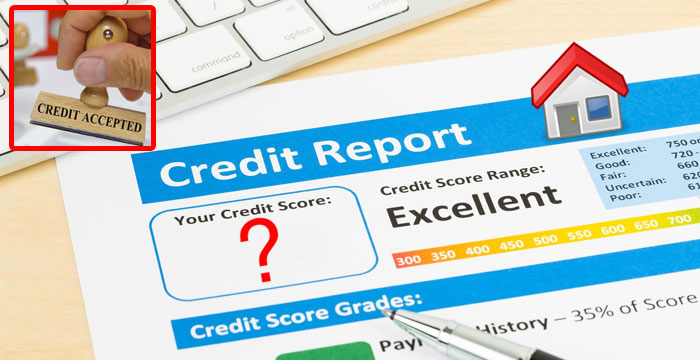
Average Credit Score in New Jersey (And What’s Needed to Buy a Home)

According to a report published at the beginning of 2018, the average credit score for New Jersey residents was 686. That was slightly higher than the national average of 675.
But what credit score is needed to qualify for a mortgage loan these days? Hint: It’s lower than the statewide average of 686.
Average Credit Score Among New Jersey Residents
In January 2018, the consumer credit-reporting company Experian published its “State of Credit” report. This report showed the average credit score in different states across the country, and for the nation as a whole.
Here are some interesting highlights:
- The average credit score in New Jersey was 686, as of the beginning of 2018.
- The average score nationwide was a bit lower at 675.
- At 709, Minnesota residents had the highest average VantageScore.
- Mississippi ranked last at 647.
Terminology note: This particular report pertains to the VantageScore credit-scoring model in particular. This is the one that’s jointly used by the three reporting bureaus — TransUnion, Experian and Equifax. There are other scoring models too, including the commonly used FICO score.
What Score Do NJ Home Buyers Need?
The averages shown above can be useful in terms of comparing credit scores across different regions, or to see how you stack up against others in your area. But those figures do not represent the minimum credit score needed for different mortgage programs. Those minimums can be quite a bit lower.
Which begs the question: What credit score do home buyers in New Jersey need, in order to qualify for a mortgage loan?
The minimum credit score needed to buy a home with a mortgage loan can vary based on several factors. First, there’s the type of mortgage loan being used. The FHA loan program requires a minimum score of 580 for borrowers who want to make the lowest possible down payment of 3.5%. Conventional (non-FHA) mortgage products sometimes have slightly higher requirements.
But there’s some flexibility here. Aside from the FHA’s specific requirements mentioned above, there is no single cutoff point for borrower credit scores. These scores are just one part of a bigger picture. Banks and lenders also look at a person’s income, debts, assets, payment history, and other factors.
How Your Financial Activity Becomes a 3-Digit Score
As mentioned earlier, there are different types of consumer credit-scoring models. Two of the most common models — VantageScore and FICO — range from 300 to 850. Earlier versions of the VantageScore had a different numerical range than FICO. But the latest version has an identical range that runs from 300 to 850. In all cases, a higher score is better.
So where do these numbers come from? They’re basically “born” from your previous financial activity.
When you take out a loan or a credit card, that transaction gets reported to the three reporting companies mentioned earlier. Your payment history also gets reported, and this is one of the most important factors that goes into creating your credit score. This information is maintained in a credit report, which in turn is used to create a three-digit score.
Financial activity >> Reporting bureaus >> Scoring model >> Credit score
So you could actually have three scores (one from each of the reporting agencies), and they might be slightly different. This is a common scenario.
Banks and lenders use these scores as part of the risk-assessment process. A higher number can help you qualify for financing, because it shows you’ve managed your debts well in the past. A higher score could also help you qualify for a lower interest rate on a mortgage, auto loan, or other type of financing.
Bottom line: The mortgage industry is fairly flexible when it comes to credit scores. So don’t be discouraged if you fall below the average score for New Jersey that’s mentioned above. The best way to find out where you stand is by speaking with one of our loan officers.